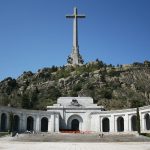IT is not difficult to imagine the tension that must have been felt on the Rock during the early stages of World War II.
Take a half hour stroll around the enclave and you will be confronted with literally dozens of defensive fortifications.
There is the Wellington Front, Casemates Gates and the King’s Bastion to name just three. They are enormous in size and make those on the Somme look like a game of soldiers in contrast.
Having lived through 14 sieges during their time as keepers of the Rock, the British were understandably concerned that when Hitler declared war, they would soon be in the frontline again.
Sitting at the entrance to the Med, with wide open views across to Africa, the strategic importance of the Rock was all too plain to see.
Whoever controlled Gibraltar controlled the Mediterranean and the authorities were certain that Hitler and his right wing ally Franco were set to invade.
The fear led to a mass evacuation leaving most Gibraltarians without a home, some for as long as 10 years.
Only those with essential jobs remained behind, with the majority packed off to the UK, Northern Ireland, Madeira and even Jamaica.
Meanwhile the Allies stepped up reinforcement and miles of new tunnels and chambers were excavated creating an ‘underground city’ that could house as many as 16,000 soldiers for up to nine months.
It even contained its own power station, water supply, and hospital. And it was from here that Operation Torch – the Allied invasion of North Africa devised by Roosevelt and Churchill – was coordinated in 1942.
So concerned were they of invasion that in 1941 the Allies also launched Operation Tracer, a top-secret ‘stay-behind mission’ that was to be implemented if Gibraltar fell to the Axis Powers.
As part of the scheme, six men — two doctors, three signalmen and their leader — were to be sealed in a cave with enough supplies for a year, from where they could look out over the Straits and wire back all shipping movements.
There was no way out and anyone who died within the chamber was to be embalmed and cemented into the walls.
Fortunately Operation Tracer was never needed as Adolf Hitler, as it turned out, was forced to turn his attention away from Gibraltar, due to General Franco.
Hitler himself had been under no illusion of the importance of the territory and hoped to launch Operation Felix, to seize Gibraltar, driving the British out and closing the Straits to the Allies.
He believed it was one of the keys to winning the war and complex plans had been drawn up in 1940.
But in an ironic twist Franco was reluctant to be dragged into the war so soon after the Civil War had crippled his own nation.
And after he backed out at the last minute, the operation was cancelled with Hitler going on to invade the Soviet Union instead.
It turned out to be a disaster and not taking Gibraltar became one of his biggest regrets.
Speaking to friends at his house in Bavaria not long before his death, he reportedly said “Gibraltar, dear friends, Gibraltar. We should have taken Gibraltar.”
Had he done so, the whole course of the war could have run very differently and Gibraltar would not be the same as it is now.







